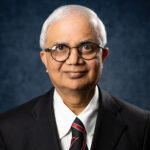The skull base is the most demanding anatomical area of the human body, representing the base of the brain and the passage of the cranial nerves and the carotid arteries. Lesions of this area are some of the most difficult to treat because of the proximity to these vital structures. Removing tumors of the skull base requires advanced surgical skills and experience. Our team at UofL Physicians provides excellence in the surgical approach to these lesions, incorporating a multi-disciplinary approach and the most up-to-date research available.
A team of neurosurgeons, endocrinologists, ophthalmologists, otolaryngologists, radiation oncologists, pathologists and neuro-radiologists join together once a month for a pituitary conference to discuss cases and determine best treatment options for the patients. Patients are then updated as indicated based on the consensus of the entire team in order to proceed with the recommended treatment.
Diseases and Conditions
Pituitary Lesions
- Acromegaly
- Cushing’s disease
- Pituitary cyst
- Prolactinoma
- Rathke’s cleft cyst
- TSH secreting tumor
Skull Based Center
- Acoustic neuroma/vestibular schwannoma
- Cholesteatoma/cholesterol granuloma
- Chordoma
- Craniopharyngioma
- Esthesioneuroblastoma
- Fibrous dysplasia
- Meningioma
- Neurofibroma
Treatments and Services
Each patient undergoes a multispecialty evaluation in order to determine the best treatment plan. Our goal is to provide the most effective care using minimally invasive techniques as indicated. Management of pituitary and skull-based lesions varies based on each individual case. Our specialists offer the following:
- Endoscopic endonasal approach for biopsy
- Endoscopic endonasal approach for resection
- Stereotactic guidance for tumor biopsy
- Stereotactic guidance for craniotomy for resection
- Intraoperative neuro-monitoring of the brain and cranial nerves
- Radiotherapy and Cyberknife
- Chemotherapy
- Medical management with hormones











